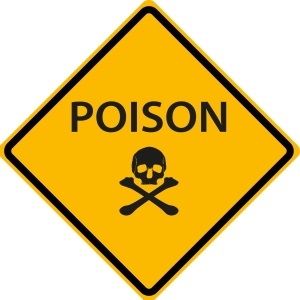
The UN's International Agency for Research on Cancer (IARC) said Friday that three pesticides, including a commonly-used weedkiller, were "probably" carcinogenic and two others, which have already been outlawed or restricted, were "possibly" so.
'Convincing evidence'
IARC classified the herbicide glyphosate and the insecticides malathion and diazinon as "probably carcinogenic" on the basis of "limited evidence" of cancer among humans.
The insecticides tetrachlorvinphos and parathion, meanwhile, were classified as "possibly carcinogenic" in the light of "convincing evidence" from lab animals, it said.
The classification, made by an expert panel, is not binding, said IARC, an agency based in Lyon, southeastern France, that comes under the aegis of the World Health Organisation (WHO).
Read: Low IQ linked to pesticides
"It remains the responsibility of individual governments and other international organisations to recommend regulations, legislation or public health intervention," it said.
Glyphosate is the most-produced weedkiller in the world, the IARC said.
Its production has surged since the introduction of crops that are genetically modified to be resistant to the chemical, thus enabling farmers to douse a field in one go to kill weeds.
"The general population is exposed (to glyphosate) primarily through residence near sprayed areas, home use and diet, and the level that has been observed is generally low," the IARC statement said.
Association between exposure and cancer
Malathion is used in substantial volumes throughout the world, with agricultural workers being the most exposed to it, it said.
Diazinon production has been low and decreased further after 2006 after restrictions were placed on it in the United States and the European Union (EU).
Tetrachlorvinphos is banned in the EU, but in the United States it continues to be used on livestock and pets, including in flea collars.
"Parathion use has been severely restricted since the 1980s. All authorised uses were cancelled in the European Union and the USA by 2003," IARC said.
Under the agency's definition, "limited evidence" means its experts, in a review of research, found an association between exposure to the chemical and cancer.
Read: Argentines link health problems to pesticides
However, chance or confounding factors cannot be ruled out, according to this definition.
A summary of the assessment was published online in the journal The Lancet Oncology, the agency said.
Read more:
Pesticide exposure may raise Parkinson's risk
Image: Poison sign from Shutterstock




 Publications
Publications
 Partners
Partners














